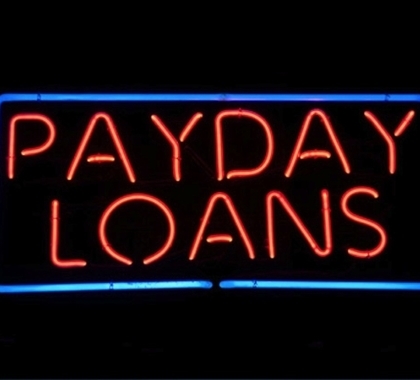Government paternalism consists not only of giving people things they didn’t pay for, but also in preventing people from making decisions that, in the benevolent judgment of superintending bureaucrats, aren’t in their best interest. Like parents with young children, government admonishes us, “No, no, this is not for you.”
Nowhere has government’s paternalistic concern for poor financial decision-making by lower income individuals been more evident than when it comes to consumer debt. In the aftermath of the 2008 financial crisis, Congress passed the Dodd–Frank Wall Street Reform and Consumer Protection Act, which created an agency called the Consumer Financial Protection Bureau (CFPB). One of the purposes of CFPB is to regulate practices in the consumer financial sector.
Over time, CFPB became concerned too many low-to-moderate income Americans fall into what is called a “debt trap,” where they have to renew payday loans multiple times because they cannot pay off the principal and interest when it comes due. Payday loans are small-dollar, short-term, single-payment loans made by specialized lenders to individuals who lack stellar credit histories and scores, but have a job or other source of steady income, such as child support or disability payments, that indicates some ability to repay. CFPB was also concerned about car title loans, which are similar loans collateralized by a used vehicle.
Typical terms for a payday loan might be a fee of $15 per hundred dollars borrowed, with a total of $115 due in two weeks. For a consumer on the verge of eviction because another unexpected expense has left them short of cash, those terms might seem reasonable. Indeed, millions of Americans take out so-called payday loans each year.
However, a $15 fee for 14 days equals an effective annual percentage rate of 400 percent, as Daniel Press of the Competitive Enterprise Institute notes. In other words, the interest rate of the loan is astonishingly high. If the borrower rolls over the loan multiple times—possibly due to continuing financial difficulties—the implicit interest rate could become truly astronomical.
In the view of CFPB, not to do something about payday loans would be a form of parental-government neglect. Therefore, in 2017 CFPB finalized the “Payday, Vehicle Title, and Certain High-Cost Installment Loans Rule,” popularly called the Payday Loan Rule. Among other provisions, the rule requires a loan company to lend only to individuals it determines can repay the loan while also having the resources to meet their living expenses.
As CFPB estimated when the final regulation was completed in 2017, this would cut the number of payday loans in half. A similar provision for auto title loans would reduce the number of those loans by about 90 percent. This means most consumers who want such loans would not be able to get them.
Critics of the finance companies that make payday loans call them “predatory lenders.” And to be sure, there have been abuses by individual firms that failed to fully inform consumers of the terms, tacked on additional fees and penalties, or resorted to harassing consumers and their employers to collect debts. However, payday lenders are not loan sharks, whose debt-collection practices often include the use of baseball bats and other blunt objects.
Furthermore, the high cost of payday loans does not translate into outrageous profits. Consumer finance is not an especially lucrative business. Rather, high interest rate loans reflect administrative costs, the likelihood of default, and the lack of effective ways to recover the money owed.
As Press stated, “the original rule emphatically failed to demonstrate a case for regulation.” Most payday loans are paid off on time, and those that are rolled over multiple times are finally extinguished, or the consumer defaults. The Payday Loan Rule was a solution in search of a problem.
Under new leadership, appointed by President Trump, CFPB has begun revising the Payday Loan Rule, and in the meantime delayed the effective date of some regulations until 2020. That is less paternalistic than some would like, but will allow consumers to access loans for their short-term needs.
Of course, consumers with better credit histories and scores can simply use their revolving installment credit. Credit cards only carry effective annual interest rates that range up to 35 percent. However, since it is revolving credit, paying only the minimum means a consumer could end up paying interest on already accumulated interest, which could take decades to pay off.
Some critics think credit card companies are predatory, too. Rep. Alexandria Ocasio-Cortez (D-NY) and 2020 presidential candidate Sen. Bernie Sanders (I-VT) have proposed limiting credit card interest rates to 15 percent. If implemented, millions of American consumers would likely no longer have access to credit cards because they do not qualify for an artificially low rate.
From a paternalistic government point of view, that’s exactly what should happen, in order to protect us from ourselves.





